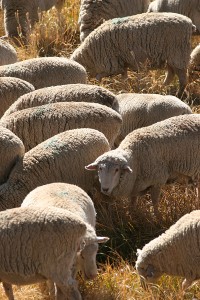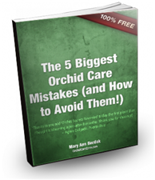 In Britain, the previous effort to conserve rare, wild and endangered flowers by the Network Rail has been found too expensive and extravagant. They in return answered with this solution – a flock of sheep to maintain and substitute the existing manual laborers that keep the wild flowers alive.
In Britain, the previous effort to conserve rare, wild and endangered flowers by the Network Rail has been found too expensive and extravagant. They in return answered with this solution – a flock of sheep to maintain and substitute the existing manual laborers that keep the wild flowers alive.
Network Rail in Britain is actually responsible for over 146 sites that are considered protected because of special scientific interest. And one of these sites is a 35 hectare field filled with rare orchids and wild growing flowers. The field is located at Great Stukeley, Cambridgeshire. This field is along the railway line that goes to the north east of England.
Before the idea of using sheep to tend to the field, Network Rail was spending around £50,000 a year to have the rare flowers protected by a staff and some volunteers. They have to eliminate the pest shrubs that drive the wild flowers away from their natural habitat. Among the species of plants that grow naturally, there are lady’s bedstraw, bird’s-foot trefoil, hairy violet, cowslip, fairy flax and pyramidal orchids. The site is also home to a few insects and bugs, such as the green bush cricket and the marbled white butterflies.
Maintenance is required because of the growing abundant brambles and hawthorn scrub, which destroy the growing wild orchids on that area. Now instead of the staff doing the cutting and weeding, the Wiltshire Horn, a sheep breed, is doing the job for them hugely cutting the cost of maintenance.
The good thing about these flocks of sheep is that apparently they enjoy eating the shrubs and pest grass, all the while ignoring the rare and wild flowers. They are described to be the perfect employees for this specific job.
These animal saviors were actually provided by Huntingdonshire District Council. They described the sheep to be a High Output Ovine Vegetation System which can be summed up in one word, HOOVES.
This ingenious effort is highly beneficial to everyone, including nature and the taxpayers.
What do you think of this idea of conservation? Do you have any similar examples? Leave us a comment below.
For other natural ways to help your orchids thrive, here are some natural pesticide suggestions.




What Readers Are Saying